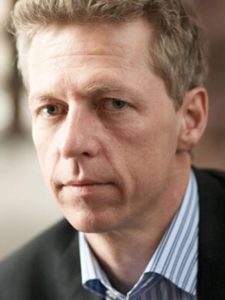
Dr. James Orbinski is a professor and the inaugural Director of York University’s Dahdaleh Institute for Global Health Research. As a medical doctor, a humanitarian practitioner and advocate, a best-selling author, and a leading scholar in global health, Dr. Orbinski believes in actively engaging and shaping our world so that it is more just, fair and humane.
A champion of health and humanitarianism throughout his career, Dr. Orbinski has extensive leadership, advocacy, and research experience in global health. He has worked providing medical humanitarian relief in situations of war, famine, epidemic disease and genocide with Médecins Sans Frontières / Doctors Without Borders (MSF). He was elected International President of MSF from 1998-2001, accepted the Nobel Peace Prize awarded to MSF in 1999, and co-chaired the founding of the Drugs for Neglected Diseases Initiative in 2004, which has since launched six new drug treatments for tropical diseases, and has 17 others in its research and development pipeline. He also co-founded Dignitas International, which researched health systems and clinical care, trained more than 12,000 Health Workers, and supported more than 370,000 people with full treatment for HIV and AIDS in Malawi. Dignitas also worked with First Nations communities in Northern Ontario on community based interventions for diabetes.
Dr. Orbinski is a board Member of Grand Challenges Canada, and has been a member of several bodies committed to improving health equity both in Canada and around the world. These include the Global Alliance for TB Drug Development, the Stephen Lewis Foundation, Canadian Doctors for Medicare, and the Climate Change and Health Council. He is an invited member of the Davos World Economic Forum’s Global Agenda Council on Health Care Systems and Cooperation. He was an invited member to the Canadian Academy of Health Sciences 2011 Expert Panel on Canada’s Strategic Role in Global Health. He is the author of the award-winning and best-selling book An Imperfect Offering: Humanitarianism in the 21st Century. In 2016-2017, as a Fulbright visiting professor to the University of California-Irvine, he worked on modelling the health impacts of climate change.
As the inaugural Director of the Dahdaleh Institute, Dr. Orbinski aims to make the institute a leader and catalyst in addressing global health issues, reflecting York University’s commitment to equity and trans-disciplinary research. The Dahdaleh Institute focuses on 1) Global Health and Humanitarianism 2) Planetary Health and 3) Global Health Foresighting.
Dr. Orbinski holds a BSc from Trent University, an MD degree from McMaster University, and an MA in International Relations from the University of Toronto. He is an Officer of the Order of Canada, and has received the Meritorious Service Cross for his leadership in providing direct medical relief in Kigali during the 1994 genocide in Rwanda. He is a member of the College of Family Physicians of Canada. An avid canoeist, Dr. Orbinski lives in Guelph, Ontario, with his wife and their three children.
You may also be interested in...
Recap — Are Distinctions Between Communicable and Non-Communicable Diseases Still Useful? Why We Should Care, with Paul McDonald
On October 9, 2024, York University Professor Emeritus and Dahdaleh Senior Fellow Paul McDonald asked seminar attendees to re-consider the traditional distinctions between communicable and non-communicable diseases (NCDs). He argued that, like many models, frameworks, ...Read more about this Post
Reflecting on Black Educators and Education with Black History Month Panellists
Originally published by News@York (27 February 2024) “February is Black History Month, but we make history every day” –Ruth Rodney, associate director, Harriet Tubman Institute Education, particularly math education, is not a neutral space for Black students. It ...Read more about this Post
Global & Environmental Health Lab
As a top-tier research group, the Global & Environmental Health Lab is committed to developing cross-culturally validated resource insecurity tools including housing, good, energy, and water insecurity scales that can be used in most low ...Read more about this Project
